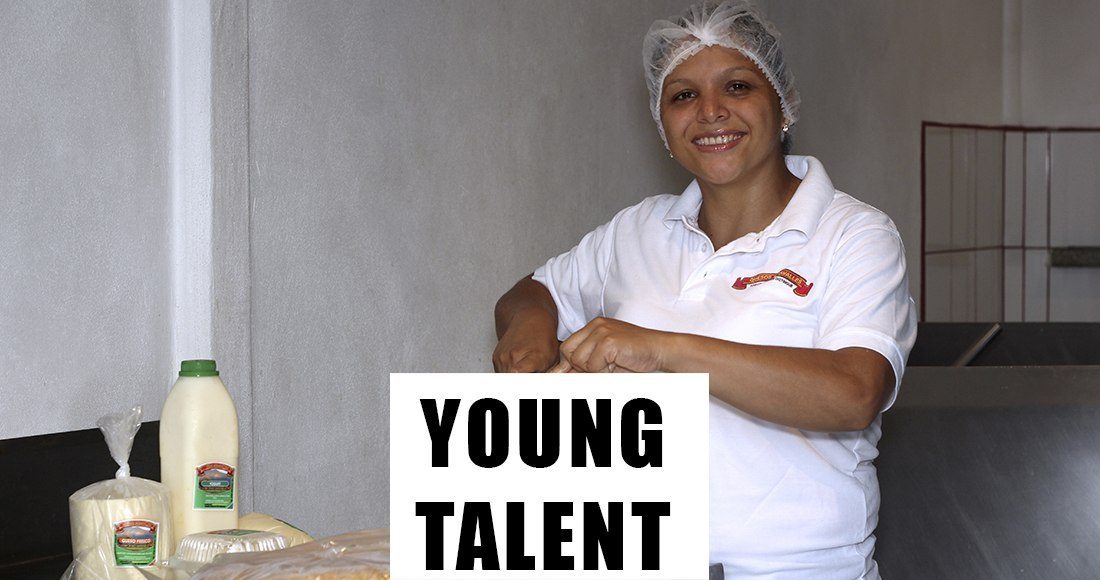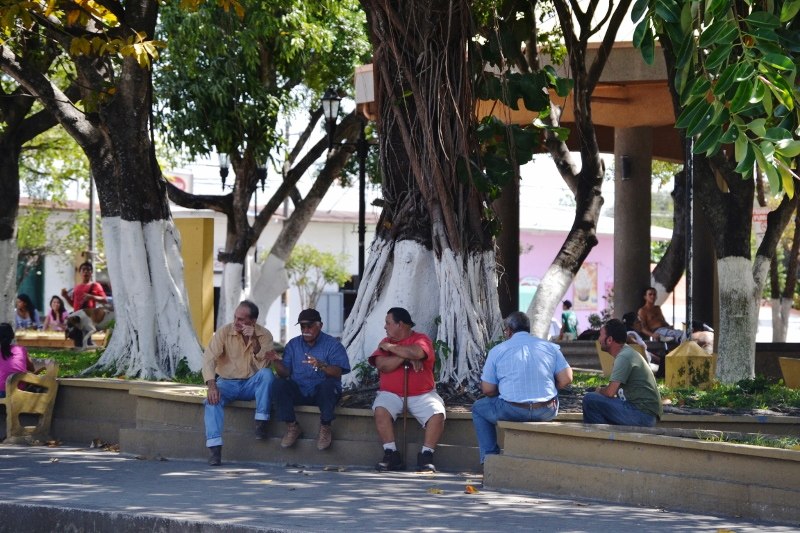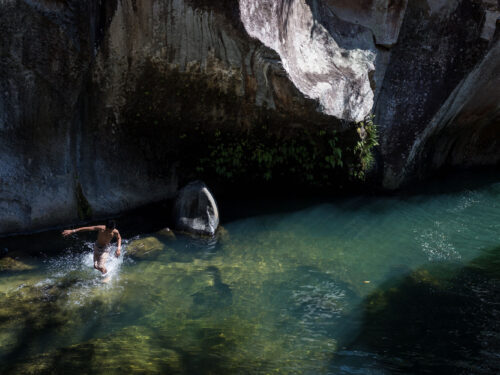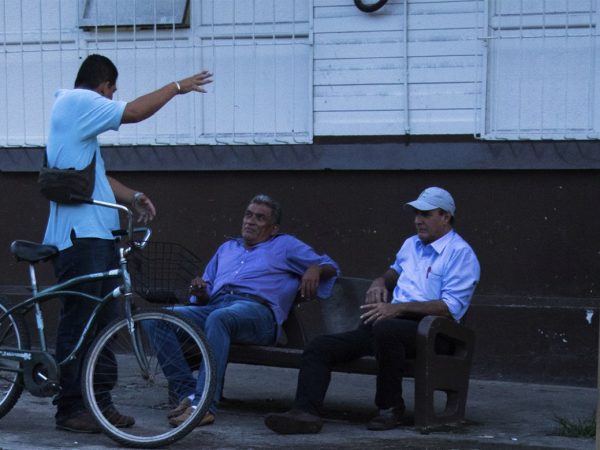
Mayra Jiménez rises every day to make cheese. This phrase would seem routine if seven months ago a hurricane hadn’t destroyed her farm and she had to reduce production by 70%. At the same time, she had to face a debt of more than ¢40 million that continues to harm her credit.
In spite of all this, every day she produces 85 kilograms of cheese at her farm in Guayabo de Bagaces. She also produces yogurt, sour cream, and other dairy products that she sells to friends, small restaurants, and stores. Additionally, she takes care of her house and two children, a fourteen-year-old girl and a nine-year-old boy.
“Little by little,” she says with a tired smile. She says that in the beginning she only produced eight kilos of cheese per day.
In recognition of her effort, this year the Agriculture and Livestock Ministry (in Spanish, MAG) awarded her with the Agricultural Merit medal. This price is awarded to people who are nominated by the community and use good agricultural practices, help local development, or be leaders in education.
The MAG recognized the businesswoman for her production of artisanal, smoked, and aged cheeses, as well as sour cream and other dairy products that are duly certified and labeled under the brand Quesos Miravalles.
Today the MAG and the National Animal Health Service (in Spanish, SENASA) use her farm as a model to train other local farms on how to recover from Hurricane Otto’s impact.
Jiménez knows that her factory isn’t very big: she only has one cooler and is reaching the limit of her production capabilities. That’s why she is thinking about expanding operations.
Risking It All
Mayra Jiménez didn’t start out being successful. She and her husband, who quit his job as a driver at the ICE, asked for a loan to plant 33 hectares of rice.
However, with rice imported from South America, they couldn’t make ends meet. They ended up with a ¢41.5 million debt that they couldn’t pay.
“I still can’t get credit. I have bad credit with the Financial Institution Superintendency (in Spanish, SUGEF),” Jiménez says.
“We got to the point where, when I put my kids to bed, I told them to eat what there was because we didn’t know if there would be food the next day.”
She started selling cow’s milk that she got from a cow that was lent to her. Soon she realized that the real money was in cheese.
“Milk sold for cheap. We barely made enough to feed the cows. Little by little we started making cheese in the most artisanal way possible. I made it in my laundry room. I started making eight kilos of cheese, which I kept in the refrigerator and sold to local corner stores, without labels,” she says.
To improve her technique, she saved up to pay for a course in dairy production at the National Technical University (in Spanish, UTN), in Atenas. Then she took another course at the National Training Institute. Today she has a small factory and has hired a milker and cheese-making assistant.
Mayra Jiménez gets up every day to go forward and, with that, help her neighbors overcome the effects of Hurricane Otto and any other setback. Who better than her?








Comments